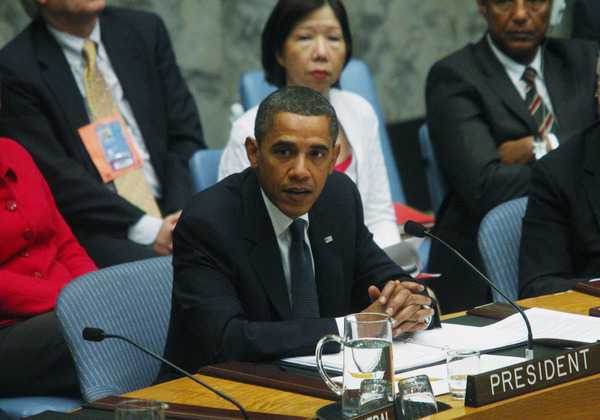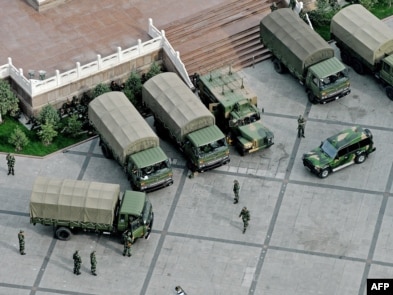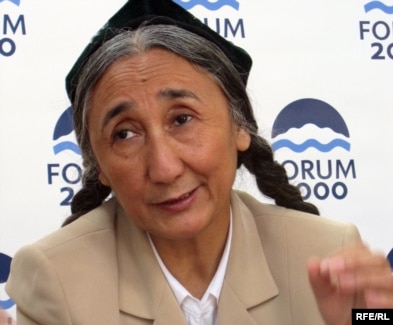Mickey Edwards
The Iconoclast

For more than 200 years, America’s policy makers have wrestled with the complexities of dealing with the world. George Washington, for example, thought America’s best interests were served by keeping the rest of the world at arm’s length (a view later amended more than slightly by James Monroe, who reversed the emphasis by insisting that other countries butt out of our business, the definition of “our business” being extended both north and south to include the entirety of “our” hemisphere.
John Adams suffered from a foreign policy heartburn brought about by Thomas Jefferson’s stopping just short of declaring that we were all, in our hearts, French. Walter Isaacson, in his biography of Henry Kissinger, traced competing foreign policy perspectives to the idealistic Jefferson (“eternal hostility against any form of tyranny over the mind of man”) and a less sentimental Alexander Hamilton, who saw “safety from external danger” as the principal consideration in determining with whom we would engage and how.
And so it has gone through the years. John Kennedy, Walter Mondale and Ronald Reagan all drew on John Winthrop and the Bible to declare that America was a “shining city on a hill” sending out its beams to the rest of the planet, Reagan playing the pivotal role in creating a National Endowment for Democracy. Reagan edited George Kennan’s long-standing “containment policy” toward the Soviet Union and replaced it with a “rollback” campaign, which mixed the Hamiltonian pursuit of security with Jefferson’s anti-tyranny crusade. Jimmy Carter pushed for greater international respect for human rights. Even George W. Bush, who was inexplicably cavalier toward civil liberties in the United States, insisted on expanding human rights and democracy in the rest of the world, though perhaps too willing to impose, rather than promote.
And so now Barack Obama occupies the place of primacy in deciding the shape of America’s international engagement. In a world full of danger, present or emerging, whose form has this new President taken? Henry Kissinger’s.
This is a bit of a surprise. One element of Obama’s electoral appeal was the clear sense that this was a man of high ideals. There is no question that those ideals existed, and strongly, and that they guided his approach to many of the nation’s most vexing problems. If he had not exactly repeated Robert Kennedy’s “I dream of things that never were and say, ‘why not’”, he had at least given a sense of commitment to the better angels.
The thing about the presidency, though, is that one invariably finds issues more complicated than they might have appeared from the campaign trail. Here, while one’s heart may echo Jefferson, one’s responsibilities make Washington’s sense of caution more appealing. Henry Kissinger, Richard Nixon’s Secretary of State, is known as the most prominent modern proponent of a “realpolitik” approach toward foreign policy in which, in the end, the most important factor in deciding a national approach to other nations is quite simple: “What is in America’s interest”?
That alone is a difficult question. It was once thought to be in America’s “interest” to ally itself with some of the worst dictators on the planet: we not only allied ourselves with, but embraced, the Batistas, the Somozas, the Shahs, the Noriegas, and while those short-term alliances may have been of some use in dealing with Soviet expansionism (a real threat at the time), we have clearly paid a long-term price for such narrowness of purpose. But the world is not easy. One wishes for more democracy, more freedom, more protection from abuse in all the places where these rights are in short supply. But there are other considerations and they necessarily impinge on the decisionmaking process. In that intra-cranial showdown, it now appears that it is the “hard” side, the perceived necessity of setting aside one’s empathies, that has captured Barack Obama’s thinking.
Obama’s “Kissinger” revealed itself first when his Secretary of State, Hillary Clinton went to China and declared that bringing up the unpleasantness of Chinese human rights violations would serve no useful purpose and detract from the importance of finding common ground with Beijing on various international concerns ranging from trade to climate change to North Korean nuclear weaponry (this from a woman who once went to China to protest its discriminatory policies toward women).
Our hearts may have wanted to protest the suppression of freedoms, say a word for Tibet,
complain about the treatment of Uighurs, but the Administration decided it needed China for other things of more immediate concern to us. That has since been followed by a retreat from our previous confrontational approach toward Sudan where Obama now envisions a more positive policy of engagement with a government whose president has been indicted by the International Criminal Court for atrocities in Darfur.
There is no bottom-line conclusion here: in a presidency that is so young, one cannot know whether the soft line taken toward China, Sudan, Russia, and other violators of human liberties will in the end dominate Mr. Obama’s foreign policy decisions. But neither can the early signs be ignored. For the moment, it appears, Henry Kissinger is back.
(Photo: Getty Images/Hiroko Masuike)
Source: correspondents.theatlantic.com/mickey_edwards, Oct 23 2009


 Chinese troops deployed in Urumqi in September.
Chinese troops deployed in Urumqi in September.





